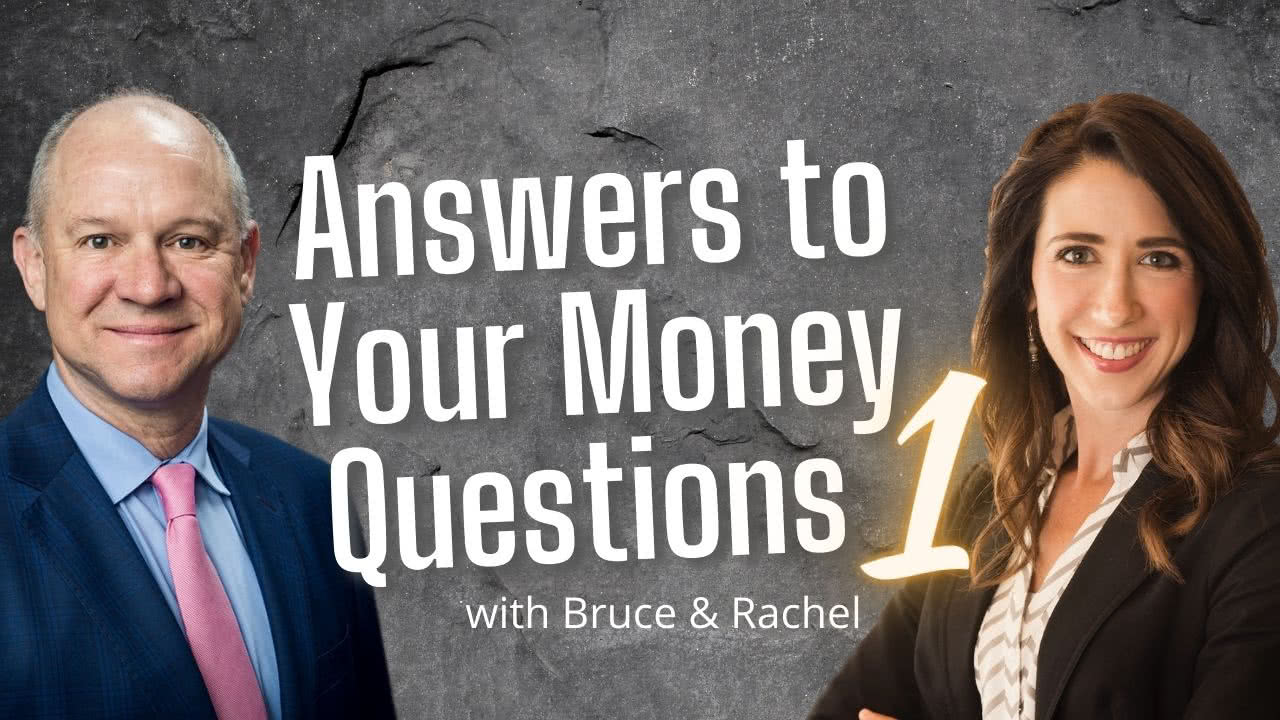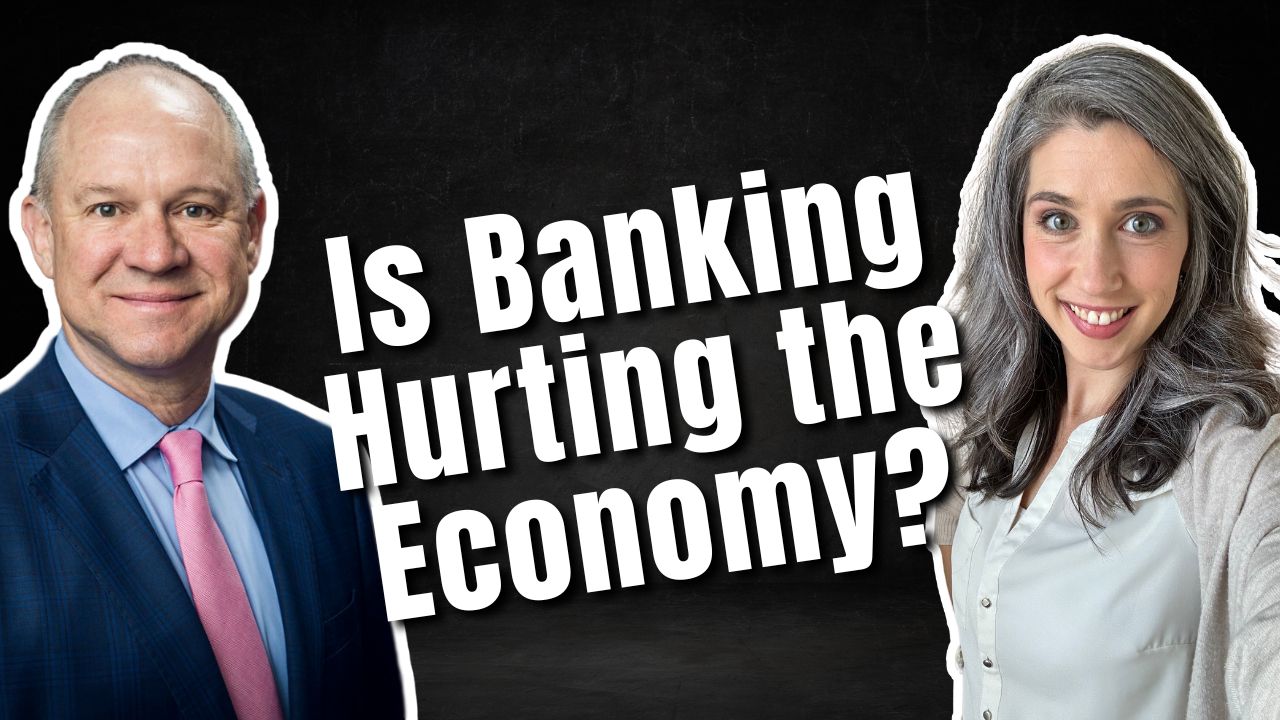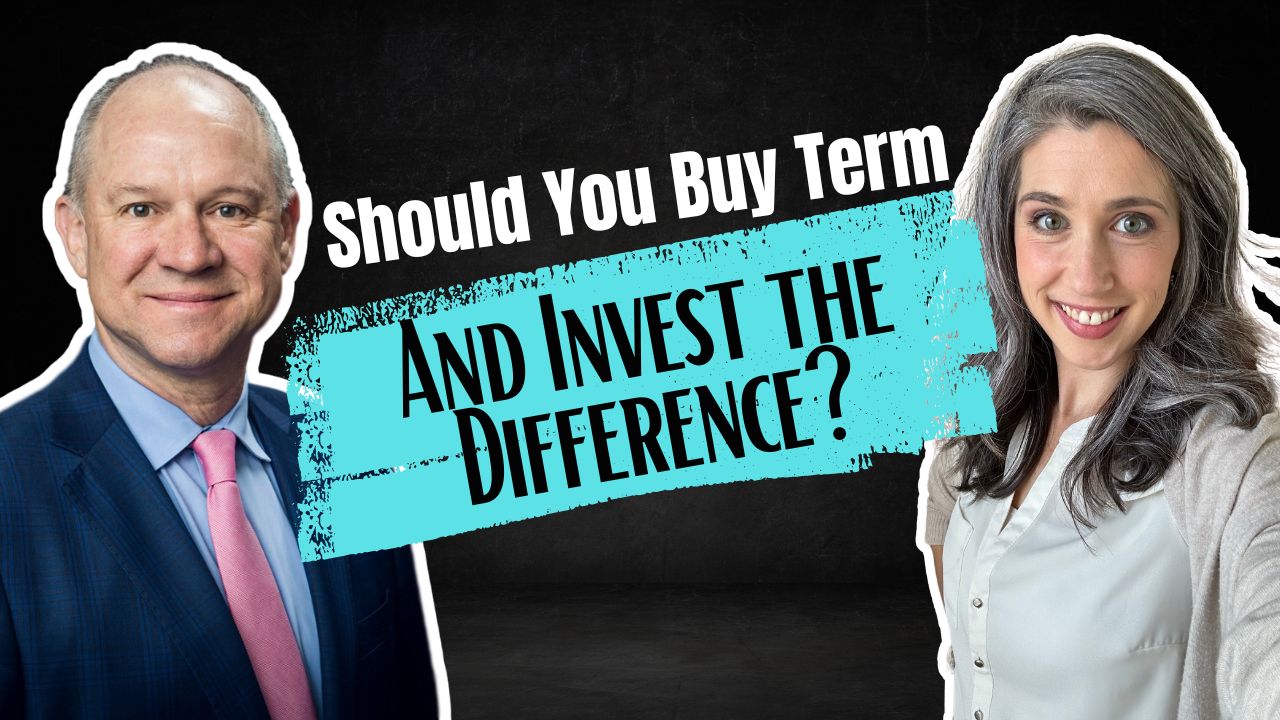
Answers to Your Money Questions, Part 1
We all have money questions. If you don’t, you just haven’t asked them yet.
Today, we’re answering questions from you—our audience, tribe, fans, those in a quest to control their money and financial future!
There are some great ones here that might be on your mind too. So maybe you’ll get the answer you’ve been needing. Then you can clear that hurdle and get one step closer to your goals. OR maybe it will prompt you to ask a question of your own. Find out and tune in now!
Podcast: Play in new window | Download (Duration: 57:52 — 66.2MB)
Subscribe: Apple Podcasts | Spotify | Android | Pandora | RSS | More
Table of contents
Does it Make Sense to Fund a Policy with a Loan?
A YouTube viewer of our show asked us the question, “Does it make sense to take out equity from an investment rental to start a policy and then borrow from that policy to reinvest in other investments?”
We believe that it makes sense to have a life insurance policy as a foundation for your finances. This is because it protects your income, provides liquidity, and shields your money from creditors. On the other hand, properly funding a whole life insurance policy requires consistent payments. Depending on your funding source, it may not be wise to fund a policy with a loan if you don’t have a strategy for paying premiums after that. This depends on your personal economy and your investing goals.
The other reason for caution is that it can take a few years for your cash value to “break even.” While you are able to take a life insurance loan right away, your cash value will not immediately equal your premiums paid. It will take time to build your policy to a point where you can make larger investments. However, when you do reach that point, it’s an excellent strategy to leverage policy loans for cash-flowing investments.
Should You Pay Off Your Mortgage ASAP?
This question comes from Lon, another viewer on YouTube. He shared with us a HELOC strategy, and ended with this hypothetical: “The other question that you really need to ask is: Is it really better to pay off my mortgage ASAP vs. using my available income for investing?”
We agree that this is a great question to ask. The answer, again, is not black and white. There are two answers to this question: a mathematical answer, and an emotional one. Mathematically, it often doesn’t make sense to accelerate payments because you lose control. Contrary to popular belief, the less you owe on your home, the more control the banks have. This is true because, in the event that you cannot pay your mortgage, the bank is less likely to foreclose when you have a large loan balance. This is because there’s a chance the banks will be unable to make up the difference.
On the other hand, if you’re only a few years away from owning your house, it’s easier for banks to foreclose. They can sell your property and have a much greater chance of making up the difference on the house.
This doesn’t necessarily mean you shouldn’t pay down your mortgage. However, it does illustrate the benefits of saving or investing your additional income, rather than putting it into the house. You can build equity in a life insurance policy, then use that to pay down your home. This is one way to maintain control of your home and your money.
Then, there’s the emotional component. Sometimes, you just sleep better at night knowing that you’re reducing your loan balance.
To learn more: 15 vs. 30 Year Mortgage: Myths About Paying Off Your Mortgage
Can You Borrow Against Your Death Benefit?
The short answer is, you cannot. When we talk about Infinite Banking, we’re talking about the ability to take a loan against your cash value. Cash value is a separate component of your whole life policy that grows based on your premiums and dividends. The first function of your premium is to cover the cost of insurance. This cost is the highest when your policy is new, because if the company has the most at stake if you were to pass away and they paid a death benefit.
Over time, however, this risk lessens because you’ve paid more premium. So more of your premium contributes to your cash-value account. You also have the potential to earn dividends, which will increase your cash value. This cash component is the only portion of your insurance policy that you can take a loan against. As your CV continues to grow, you’ll have a larger pool of money to borrow against.
Why Can’t You Simply Increase the Face Value of an Existing Policy?
This is due to the actuarial science that goes into your insurance contract. It’s important to remember that your insurance policy is a contract. Once it’s in effect, both parties are beholden to the terms agreed upon. While this can be limiting, this is actually a great thing.
For starters, insurance companies use actuaries to determine life expectancy based on age and health. In turn, this helps the insurance company give you the best premium rate for the face amount of your policy. Once it’s in the contract, this cannot change—including an increase in premium.
If you were to change any of these variables, including the death benefit, the math could potentially change dramatically, regardless of whether you’re maxing your PUAs. In fact, PUAs, or paid-up additions, are actually considered micro-policies that you purchase, rather than “extra payments.” Therefore, to change any part of this contract would be complicated.
You can, however, buy convertible term insurance up to your human life value and convert it to whole life insurance later. You can even convert it in portions, as your income increases. This allows you to lock in your insurability at a certain age and health status.
Is it Complicated to Prove Disability?
On YouTube, Shakeel asked, “Regarding waiver of premium, how many hoops do I have to jump through to prove I am disabled?” Waiver of Premium is an insurance rider that allows you to waive premium payments in the event that you become disabled and unable to work.
We prefer to think of these not as “hoops,” but as stipulations of the contract. If you have a policy with a mutual company, that makes you a partial owner of the company. As such, you have a stake in the success of a company—and it’s important to the company’s success to do their due diligence in paying benefits.
Insurance companies have extremely precise definitions of disability, in order to have more control over who qualifies for a waiver of premium. This definition can vary from company to company, yet generally means that a person is completely unable to perform the duties of their job.
To prove this, insurance companies generally require two doctors to attest that you are unable to perform any job by any means. This is an optional provision that costs extra, so it’s up to you to determine if that’s worth it to you.
What Insurance Companies Do You Suggest?
We highly recommend choosing a mutual life insurance company. This simply means that policyholders share in the profits of the company, rather than shareholders. Because of this, mutual companies are often much more conservative in their financial decisions. This is a benefit to policyholders because conservative decisions make them more sustainable. Companies that act in favor of shareholders are less conservative.
We also recommend seeking companies with strong finances and good customer service. Some whole life insurance companies don’t embrace the utilization of your cash value, and they do not set their customer service up to accommodate IBC. That doesn’t mean it’s not possible, however it does mean that the loan process can be more difficult.
Here is our criteria for life insurance companies: Privatized Banking: The Best Life Insurance Companies
For the best synergy, look for an advisor team that aligns with your goals. They can help you make your policy work the way you envision, and act as an intermediary with the company as well.
What are the Interest Rates on a Policy Loan?
Interest rates are set by contract, and they can adjust each year. The insurance company sets the rate once a year, and if you take a loan you’ll pay the accumulated interest once a year. The sooner you pay back the loan, the more you save on interest.
To learn more: How Infinite Banking Loan Interest Works
Can I Do a 1035 Exchange Between Companies?
In general, you can do a 1035 exchange between products. It’s hard to say for certain without looking at the specific policy language.
To learn more about 1035 Exchanges: When Should You Use a 1035 Exchange with Life Insurance?
What Are the Best Companies to Work with for Policy Loans?
While we touched on this a few questions prior, another difference between many insurance companies is whether they are “direct recognition” or “non-direct recognition” companies. These companies differ in how they pay dividends on the cash value when that cash value has been collateralized.
For example, let’s say that you have $100k in cash value, and take a loan of $50k. A direct recognition company will pay the normal dividend rate on the $50k cash value that has not been utilized, and a different/reduced dividend on the portion that is collateral for your loan.
The problem is that people want to compare dividends between companies, yet all companies apply the dividend rate differently. Instead, we recommend considering what you value in your strategy. However, over long periods of time (such as 50 years) there are not huge differences between different types.
The best thing you can do is make a decision and get started. You can learn more about direct and non-direct recognition here.
How Do Premiums Contribute to Cash Value?
It all depends on how your policy is designed. The amount of early cash value you have will depend on your death benefit, and whether you have PUAs. Working with an experienced team can ensure you have the right design.
Arash, who asked the original question on YouTube, also mentioned the desire to pay off student loans with a policy loan. While this is possible, it can require paying into a whole life insurance policy for some time, until the cash value is sustainable enough. This means you’ll likely be making payments on your student loan along the way. While this will reduce the balance, your monthly bill may affect what you’re able to put into your insurance policy.
Term insurance will likely be a more affordable option in terms of premium, however, there is no cash value component to take a loan against.
The real question is probably: what is the best strategy to deal with your student debt? For more information, we recommend reading our post: The Cash Flow Index.
Isn’t a Dividend Just a Refund of Premium?
The originator of the question follows this up with the question: When you say your policy grows, how is that so if it is your own premiums being paid back to you?
This is a common misconception, as the IRS does classify dividends as a refund of premium. While there is some truth to the classification, it’s because of the way the actuaries calculate the premium. Essentially, the actuaries want to ensure that they overcollateralize policies in the beginning in case there’s no return on their bond portfolio. They use this additional money to invest and earn. When they do, they are able to then return what they used to make more money. The great part is that it comes back to you tax-free, even though the company has made more money.
What gets redistributed back to policy owners isn’t simply what you paid into it. It’s actually the profits of a pool of premiums from all policy owners. It’s not sitting there until the companies can pay it back. If all they were doing was returning your money, your cash value would never grow beyond what you pay in premiums, and yet policies do grow beyond this all the time.
To better understand dividends:
- Whole Life Insurance Dividends Demystified, with Perry Miller.
- Is Infinite Banking a SCAM? Dave Ramsey Says So.
Book A Strategy Call
Do you want to coordinate your finances so that everything works together to improve your life today, accelerate time and money freedom, and leave the greatest legacy? We can help!
Book an Introductory Call with our team today https://themoneyadvantage.com/calendar/, and find out how Privatized Banking, alternative investments, or cash flow strategies can help you accomplish your goals better and faster. That being said, if you want to find out more about how Privatized Banking gives you the most safety, liquidity, and growth… plus boosts your investment returns, and guarantees a legacy, go to https://privatizedbankingsecrets.com/freeguide to learn more.
Fractional Reserve Banking Creates Inflation: Infinite Banking is the Solution
Inflation causes everything to feel more expensive, so what do you do to protect your money from inflation? Today, we’ll explore the link between inflation and fractional reserve banking, and how Infinite Banking is the sound money solution. A thought-provoking journey through inflation, fractional reserve banking, and the revolutionary concept of infinite banking. This episode…
Read MoreBuy Term and Invest the Difference: Here’s What’s Wrong
Are you trying to decide which type of life insurance to buy? You want to protect your family in case something happens, so how do you do it best? Whole life insurance is often rejected as expensive and a poor “investment,” while mainstream opinion leans in favor of the “buy term and invest the difference”…
Read More


